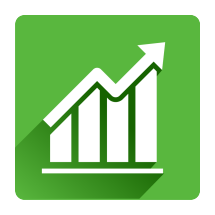
Marketing content shared with Michigan Business Network by:
Bonnie J. Knutson, PhD
The School of Hospitality Business
Broad College of Business
Michigan State University

Not long ago, I was watching one of my morning go-to financial shows when I heard a guest talking about how we will be “popping” in and out of the education world throughout our lifetime. Maybe it will be to change careers. Projections suggest that today’s college graduates will change jobs at least four times in the first ten years, while those in the Baby Boomer generation will average 12 different jobs in their lifetimes.i Maybe it will be to learn or enhance proficiencies in new skills for work; remember the first time you tried to send participants into a Breakroom on Zoom? Or perhaps it will just be to experiment with different talents we think we have or wish we had.
Listening to that guest, I found it interesting that he made the “popping in and out” notion seem as if it were a revolutionary concept. It is not. Futurists have been writing about when we learn, when we work, and when we retire for years. Childhood was for learning, adulthood was for working, and old age was for retiring and going on a cruise. This learn-work-retire pattern has been described as the Linear Life Plan and brought to the forefront by Ken Dychtwald more than 30 years ago in thinking about what will drive business.
He showed how seismic forces are altering the way we learn, work, rest and are forging a different life pattern, which he named the Cyclical Life Plan.ii While it would take a huge book to list and detail all these seismic forces, here is a capsulized version of what I deem to be the top three.
Ø Living longer and aging better. It is no secret life expectancy has risen in the U.S. If you were born in 1860, you would have been lucky to see your 40th birthday. By 1935, when Social Security was enacted, men were projected to reach 60 while women would make it to 64. Today, the current 2021 life expectancy is 79 years, which is remarkedly an .08% increase from just last year. For the first time in history, then, there are five generations of consumers. This means there are also five generations of your current and future employees.
Ø More time for leisure. With the constant 24-hour barrage of emails, LinkedIn, Instagram, and texts, it sure does not seem like it, but we are working fewer hours per week than ever before in U.S. history. In January 2021, the average working week for all employees on private nonfarm payrolls in the United States was at 35 hours.iii This is 16 fewer hours than the 51+ hours our grandparents would have been working back in 1924. Those 16 “fewer” hours equate to two traditionally full eight-hour workdays.
Ø Knowledge is Running Amok. Futurist Buckminister Fuller concluded that human knowledge doubled about every hundred years until about World War II when the rate of doubling shrunk to every 25 years. He called it the “knowledge doubling curve.” Later, IBM predicted that, by 2020, the Internet of Things would enable knowledge to double every 12 hours. This gives credibility to the claim that what college students learn in their freshman year will be obsolete by the time they are juniors. Yikes! Human knowledge is now growing exponentially, and we may reach a point where it increases faster than the human brain can retain it. (Enter R2D2 and C-3PO.) In fact, IQs in some developed countries have recently dropped. While there could be a myriad of causes for the decline, I once heard a quip that the reason they dropped is because we do not have to remember anything anymore. If we do not know it or forget it, we can just “Google it.” We already live, not by the ABCs, but by the 3 As – Apple, Amazon, and Alphabet. Consequently, we all will be on a treadmill of continually needing to update out-of-date knowledge with new knowledge in a continuous process of unlearning and learning.
As the past year has shown, technology seems to have accelerated these forces to a level of Mach 1. While it has been a “glass half empty” on many fronts, it is also a “glass half full” on others offering incredible possibilities for your business to “refresh, rebuild, and reignite.” Benjamin Franklin said, “When you are finished changing, you are finished.” Well, Michigan businesses are certainly not finished changing, and they certainly are not finished. I am excited for the future.
Your Bottom Line will thank you!
i Bureau of Labor Statistics, 2019 ii In his benchmark book, Age Wave, Dr. Dychtwald credits Fred Best, PhD, a sociologist and futurist, as developing the cyclic-life-plan idea. iii Bureau of Labor Statistics, 2021












